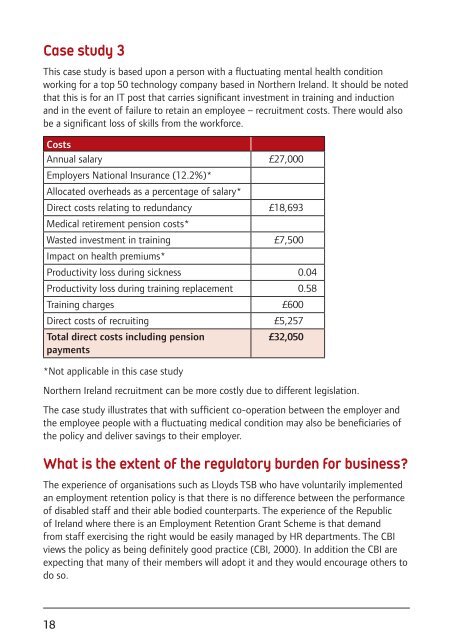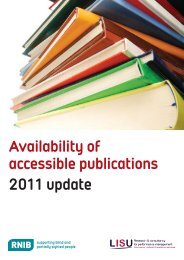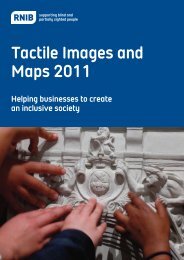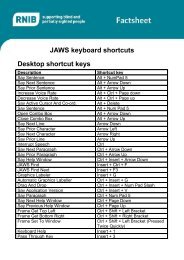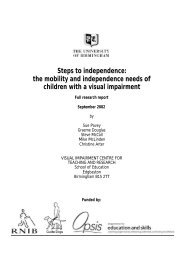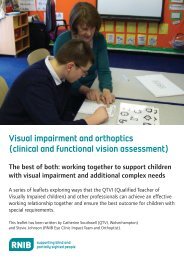Vocational rehabilitation: The business case for retaining ... - RNIB
Vocational rehabilitation: The business case for retaining ... - RNIB
Vocational rehabilitation: The business case for retaining ... - RNIB
Create successful ePaper yourself
Turn your PDF publications into a flip-book with our unique Google optimized e-Paper software.
Case study 3<br />
This <strong>case</strong> study is based upon a person with a fluctuating mental health condition<br />
working <strong>for</strong> a top 50 technology company based in Northern Ireland. It should be noted<br />
that this is <strong>for</strong> an IT post that carries significant investment in training and induction<br />
and in the event of failure to retain an employee – recruitment costs. <strong>The</strong>re would also<br />
be a significant loss of skills from the work<strong>for</strong>ce.<br />
Costs<br />
Annual salary £27,000<br />
Employers National Insurance (12.2%)*<br />
Allocated overheads as a percentage of salary*<br />
Direct costs relating to redundancy £18,693<br />
Medical retirement pension costs*<br />
Wasted investment in training £7,500<br />
Impact on health premiums*<br />
Productivity loss during sickness 0.04<br />
Productivity loss during training replacement 0.58<br />
Training charges £600<br />
Direct costs of recruiting £5,257<br />
Total direct costs including pension<br />
£32,050<br />
payments<br />
*Not applicable in this <strong>case</strong> study<br />
Northern Ireland recruitment can be more costly due to different legislation.<br />
<strong>The</strong> <strong>case</strong> study illustrates that with sufficient co-operation between the employer and<br />
the employee people with a fluctuating medical condition may also be beneficiaries of<br />
the policy and deliver savings to their employer.<br />
What is the extent of the regulatory burden <strong>for</strong> <strong>business</strong>?<br />
<strong>The</strong> experience of organisations such as Lloyds TSB who have voluntarily implemented<br />
an employment retention policy is that there is no difference between the per<strong>for</strong>mance<br />
of disabled staff and their able bodied counterparts. <strong>The</strong> experience of the Republic<br />
of Ireland where there is an Employment Retention Grant Scheme is that demand<br />
from staff exercising the right would be easily managed by HR departments. <strong>The</strong> CBI<br />
views the policy as being definitely good practice (CBI, 2000). In addition the CBI are<br />
expecting that many of their members will adopt it and they would encourage others to<br />
do so.<br />
18


